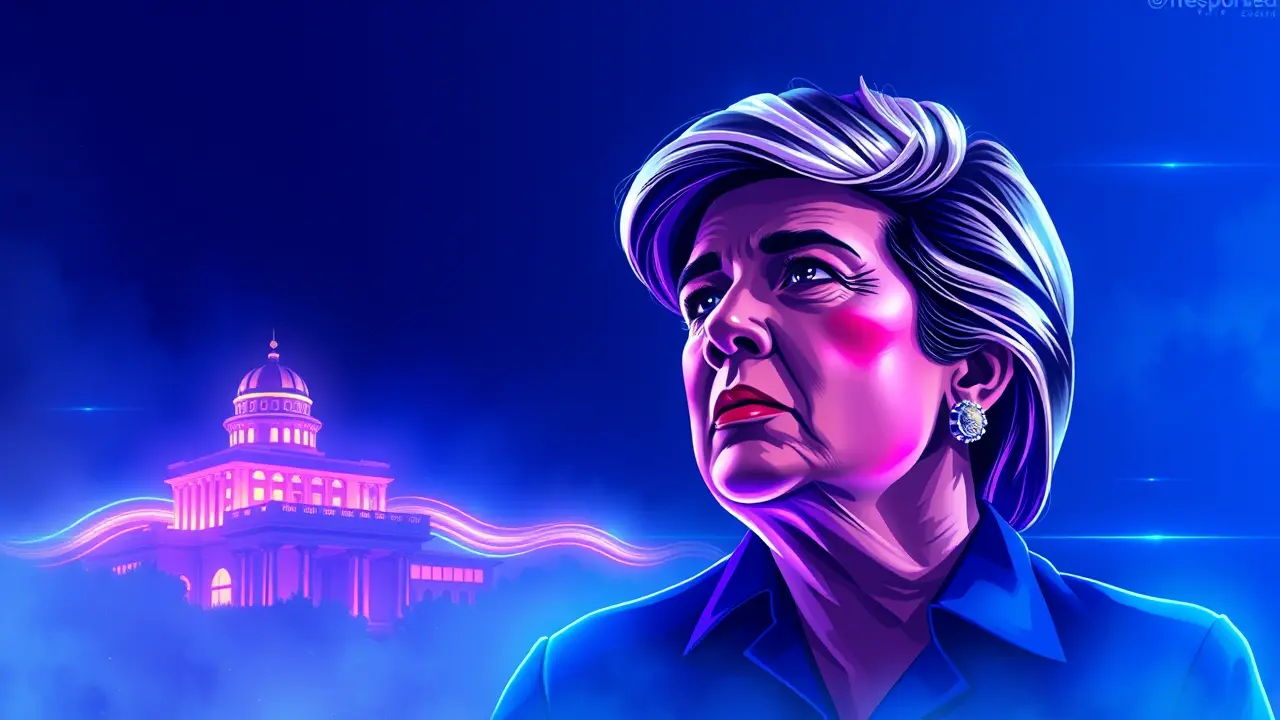Venezuela Opposition with Nobel Prize Seeks Trump's Help
In a move that echoes the desperate diplomatic overtures of a bygone era, Venezuelan opposition leader María Corina Machado has issued a direct and public plea to former U. S.President Donald Trump, imploring him to leverage his considerable political influence to aid a nation still mired in a profound and multifaceted crisis. This is not merely a request for assistance; it is a strategic gambit that reveals the stark realities of Venezuela's protracted political stalemate and the shifting sands of international power dynamics.Machado, a figure who has endured political disqualification and relentless state persecution, is bypassing conventional diplomatic channels, a tactic reminiscent of exiled leaders during the Cold War who sought powerful patrons to champion their cause against authoritarian regimes. Her call to Trump is particularly significant, underscoring a calculated assessment that the political winds in the United States may once again shift, making the former president, not the current administration, the pivotal actor in any future resolution.The crisis she describes is not hyperbole; it is a grim tableau of economic collapse, where hyperinflation has vaporized savings, and a humanitarian catastrophe, with nearly eight million citizens having fled the country, creating a diaspora that strains regional stability. The Maduro government, entrenched with the support of military elites and external allies like Russia and Iran, has proven resilient, weathering sanctions and international condemnation through a combination of patronage and repression.Machado’s appeal, therefore, is a stark admission that the opposition’s traditional avenues have been exhausted, forcing a turn towards a more volatile, personality-driven form of international pressure. This carries immense risk, inherently tying the fate of Venezuelan democracy to the turbulent arena of American partisan politics, where foreign policy can become a bargaining chip.A comparison to Churchill’s efforts to draw the United States into the fight against fascism in the 1940s is not entirely out of place; both were pleas from a beleaguered political figure to a powerful, albeit reluctant, potential ally, recognizing that some conflicts cannot be won without external intervention. However, the modern context is far more complex, entangled with global energy markets, migration crises, and the strategic interests of rival superpowers.The consequences of this plea are multifaceted: it could reinvigorate the opposition’s morale and apply a new form of pressure on Caracas, but it also risks further polarizing the international response and alienating segments of the Venezuelan populace wary of American interventionism. Ultimately, Machado’s direct address to Mar-a-Lago is more than a news item; it is a dramatic chapter in a long-running tragedy, a testament to the enduring plight of the Venezuelan people and a high-stakes wager on the unpredictable nature of American power in the twenty-first century.
It’s quiet here...Start the conversation by leaving the first comment.
© 2025 Outpoll Service LTD. All rights reserved.
